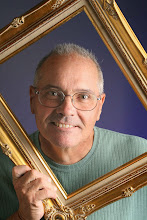Interruption in Blog
...I had to go for four days to stay with my father who is approaching 95 years of age. He lives with my older sister, and she needed to take a break to go see some of her relatives. Dad and I went fishing two times, catching a few crappie. I got to see my first great great niece ever: Ciara Jo Capton.
...Now I return and find that we are on the verge of being able to "turn off" certain genes in molecular medicine. I hope there will be some serious ethical thought to this process.
...Physicists won the Nobel Prize for Peace measuring some background radiation that they claim substantiates the "big bang" theory of universal origins. They also claim that the measurements support an age of 13.7 billion years for the universe. Of course, this is from an extrapolation from measurements of things they claim happened 380,000 years ago. Does anyone else have a problem with such extreme ages? All of this started with a need to have long ages for statistical probabilities of evolution. The best mathematicians understand that these ages don't scratch the surface of that which would be needed to insure even the probability of one cell being formed. The physicists uses equations in quantum mechanics that require assumptions of long ages for them to predict what their measurements might imply. It is again another instance of circular logic applied to physical measurements. Back when carbon-14 dating was promoted, the ages were measured to be in the tens of thousands of years. With each new dating method, the years increased until someone was satisfied that the rhenium-osmium dating would give sufficient ages, so that the least-inquiring mind would not deny them. From those measurements and assumptions, the calculators came up with about 4 billion years for the formation of the earth. That was a large enough number for the average laymen to accept their theories of origins. These same laymen still believe that millions of people buying powerball tickets will produce a winner, when it takes many more purchases and weeks to get one winner. And that is just to get six numbers in any order to match a ticket. Now how many tickets would have to be purchased to produce one winner with the number and location of proteins in a single molecule of DNA for one cell? It is more than "astronomical."


0 Comments:
Post a Comment
<< Home